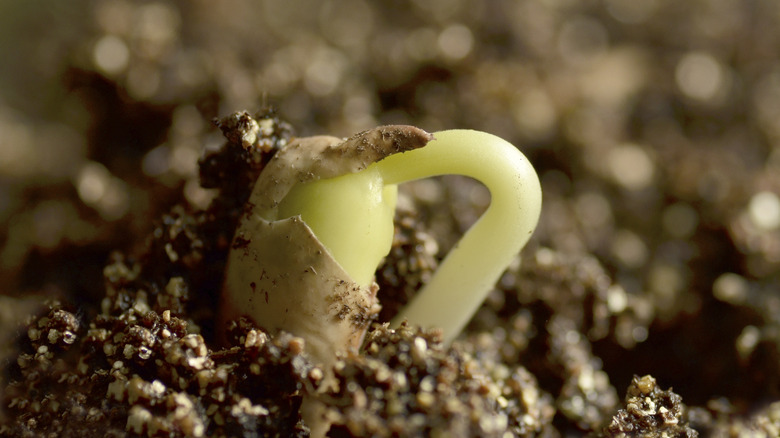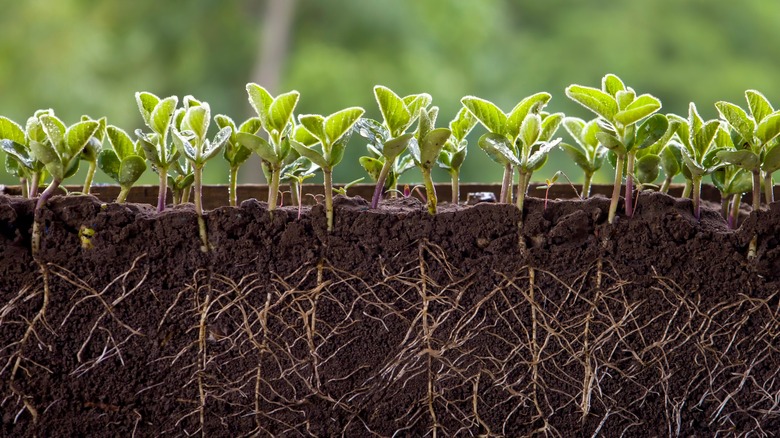This Clever Hack Germinates Plants With A Common Kitchen Staple
Planting the perfect garden can be complicated, especially because some tender plants — like tomatoes — can't be put into the ground until after the last frost (meaning that the best time to plant tomatoes will vary from zone to zone). Sometimes, in places where the growing season is short, the best way to get your garden started is to grow your plants from seeds indoors. This way, you can germinate your seeds and get them sprouting in early spring so that they can grow to their fullest potential after they are transplanted outside. However, the problem with this is that some seeds take longer to germinate (or sprout from a seed) than others. Luckily, if you want to speed up the germination process for certain seeds, all you need is one common kitchen staple — vinegar.
Because vinegar is so useful around the yard and garden, it may come as no surprise that this versatile ingredient can also help with germination. This trick works especially well for seeds with thick outer shells (like okra, dried peas, beans, spinach, and winter squash) because these seeds require the outer skin to be weakened in through a process known as scarification in order to sprout. Because of its acidic properties, vinegar is able to help break down the outer skin of tough seeds and make germination happen not only more quickly, but also more successfully.
How to germinate your plants with vinegar
The first step in germinating your garden seeds with vinegar is to figure out if your plants will benefit from the process. To do this, you should do a little research online to figure out if your specific seeds require scarification. While many wildflowers and native plants need scarification, most vegetables (besides those listed above) do not. Once you've determined that your seeds would benefit from breaking down the outer skin with some acidic vinegar, you can gather your tools. Another benefit of soaking in vinegar is that it can help to disinfect the seeds and kill pathogens like mold.
To start the process, go ahead and combine one teaspoon of vinegar with one cup of water in a bowl and then dump the seeds inside. Let the seeds soak in the vinegar and water mixture overnight but not for more than 12 hours. While most studies have explored the benefits of soaking seeds in white vinegar, some gardeners have also had anecdotal success with apple cider vinegar. When using apple cider vinegar, you can follow the same process but the ratio of vinegar to water should be one to three.

